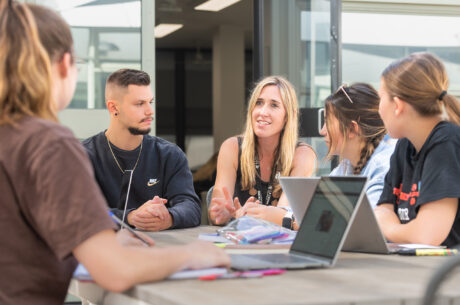Research

We are well recognised for our research both nationally and internationally.
Key benefits of RCEM
- Transformative learning: By deconstructing and reconstructing experiences, teachers gain deeper insights into their own values and assumptions, enabling transformative changes in practice.
- Enhanced relationships: Reflective practice fosters patience, understanding, and flexibility in interactions with students, colleagues, and the wider school community.
- Problem-solving through collaboration: Group reflection allows educators to benefit from their peers’ experiences, collectively addressing complex challenges in teaching.
- Empowerment and resilience: Teachers equipped with reflective skills report increased effectiveness, reduced tension, and invigorated professional enthusiasm for their work.
Research Areas
Southall, A. E., Baxter, L. P., & Gardner, F. (2023). Transforming trauma-informed understanding into trauma-informed practice: The Reflective Circle Education Model. Australian Journal of Education, 67(1), 62-75.
Baxter, L. P., Gardner, F., & Southall, A. E. (2023). Reflecting on teaching in low SES areas during COVID-19: an Australian experience. Cambridge Journal of Education, 53(2), 177-193.
Gardner, F., Southall, A. E., & Baxter, L. (2022). Effectively supporting teachers: a peer supervision model using reflective circles. Teachers and Teaching, 28(3), 369-383.
Southall, A. E., Gardner, F., & Baxter, L. P. (2022). Educator perspectives on teaching students from traumatic backgrounds and the potential for reflective circles. The Australian Educational Researcher, 49(4), 675-689.
Baxter, L. P., Southall, A. E., & Gardner, F. (2021). Trialling critical reflection in education: The benefits for school leaders and teachers. Reflective Practice, 22(4), 501-514.
Southall, A. (2024). The trauma challenge: How teachers experience students with complex trauma. British Journal of Special Education, 51(1), 3-14.
Gardner, F. (2014). Being critically reflective: Engaging in holistic practice. Bloomsbury Publishing.
Fook, J., & Gardner, F. (Eds.). (2012). Critical reflection in context. Abingdon: Routledge.
Gardner, F. (2009). Affirming values: Using critical reflection to explore meaning and professional practice. Reflective Practice, 10(2), 179-190.
Critically reflective practice provides an opportunity for teachers to reflect on their relationships and experiences in ways that develop deeper levels of understanding.
This process encourages educators to identify the underlying values and assumptions driving their actions, leading to deeper insight and transformative learning (Gardner, 2014).
“Stage one explores how a particular experience is significant to the person, identifying hidden or ‘taken for granted’ theory or assumptions. Stage two explores how practices and actions need to change to fit how the person prefers to work in order to fit with fundamental values” (Gardner, 2014, p. 55).
Reflexivity fosters transformation, allowing teachers to align their practices with their core values and approach challenges with greater clarity.
“Just knowing that we are not alone in our struggles can be a life-saving realization. Although critical reflection often begins alone, it is, ultimately, a collective endeavour” (Teacher Primary School).
Participating in group reflective practices creates a supportive environment where shared experiences become a catalyst for solving complex problems (Fook, 2016; Edwards, 2009).
Teachers who engaged in reflective circles noted a shift in perspective:
“Rather than labeling a student as ‘difficult,’ teachers began to see students as having ‘good and bad’ days, fostering greater patience and flexibility” (Specialist school teacher).
Reflective practices also helped educators identify and manage their own reactions, ensuring their responses were student-focused rather than driven by personal feelings (Southall, 2021).